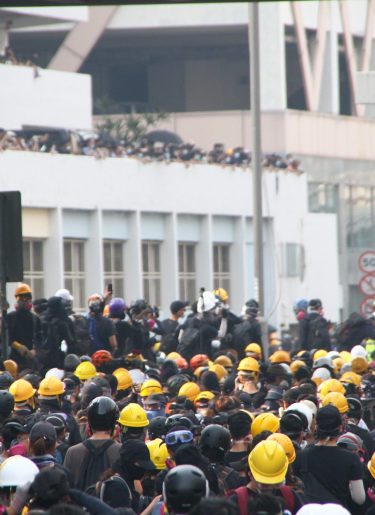
In France, the requisitioning of striking employees (requiring them to work) generally results from a decision by a prefect, the regional state representative. The General Code of Local Authorities provides that:
‘in emergencies, when the observed or foreseeable damage to public order, health, peace and safety so requires and when the means available to the prefect no longer allow the pursuit of the objectives for which he has police powers, he may, by reasoned decree, for all the communes of the department or several or one of them, requisition any property or service, request any person necessary for the operation of this service or the use of this property and prescribe any useful measure until the breach of public order has ended or the conditions for its maintenance are ensured.’
(Article L. 2215-1, 4°).
Refusal to carry out a requisition decision is an offence punishable by six months’ imprisonment and a fine of EUR 10,000 euros for employees who do not comply.
This text above covers the requisitioning of private sector employees. The Conseil d’Etat ruled this was possible as early as 2003 stating that a prefect can:
‘legally requisition the striking agents of a health establishment, even a private one, with the aim of ensuring the maintenance of a sufficient number of staff to guarantee the safety of the patients and the continuity of care.’
(CE 9 December 2003 n° 262186).
Today, administrative case law makes the validity of requisitioning private sector employees conditional on the fact that:
‘the activity is of particular importance for the maintenance of economic activity, the satisfaction of the essential needs of the population or the functioning of public services, when the disturbances resulting from the strike create a threat to public order’
(Conseil d’Etat, 27 October 2010, n°343966. This decision was also rendered in relation to a strike affecting fuel distribution.)
For example, the following are likely to justify a requisition request, given the nature of the activity in question:
The prefect may only take measures that are necessary, required by the emergency and proportionate to the needs of public order (CE, 27 October 2010).
Several court orders have recently been issued in the context of the current wave of strikes affecting fuel distribution. All of them rejected the request for suspension of prefectural orders to requisition striking employees, meaning requisitioning the employees was lawful.
The Rouen appeal court reached the same conclusion in relation to Seveso site (TA Rouen, 12 September 2022).
On the other hand, the Rennes appeal court recently ruled in the opposite direction concerning a strike affecting a medical analysis laboratory (TA Rennes, 15 October 2022). In this case, it was not demonstrated that:
‘the scale of the announced strike would be likely to have such an impact on the activity of analysis of medical samples from the private establishments concerned that it would be likely to immediately and seriously compromise the functioning of the health system within the Rennes conurbation, with regard to the safety of patients and the continuity of care, by making it necessary to organise a minimum service without delay, by requisition.’
In view of this, the prefect’s order to requisition striking employees was deemed to be a serious and manifestly illegal infringement of the fundamental freedom to strike.
Requisitioning should not be confused with organising continuity of public service. The law provides this is possible in certain sectors (land passenger transport, air navigation, audiovisual public service). In the absence of a legal text, it can also be implemented by a public service in some circumstances (CE, 7 July 1950, Dehaene) to respond to ‘the necessities of public order or the essential needs of the country’ (CE, 12 April 2013; see for example: CE, 5 April 2022 which ruled that the Minister of Transport is competent to fix minimum service on motorway concessions).
#strikes #unions #industrialaction #costofliving #France
For more information about Worker Representation



